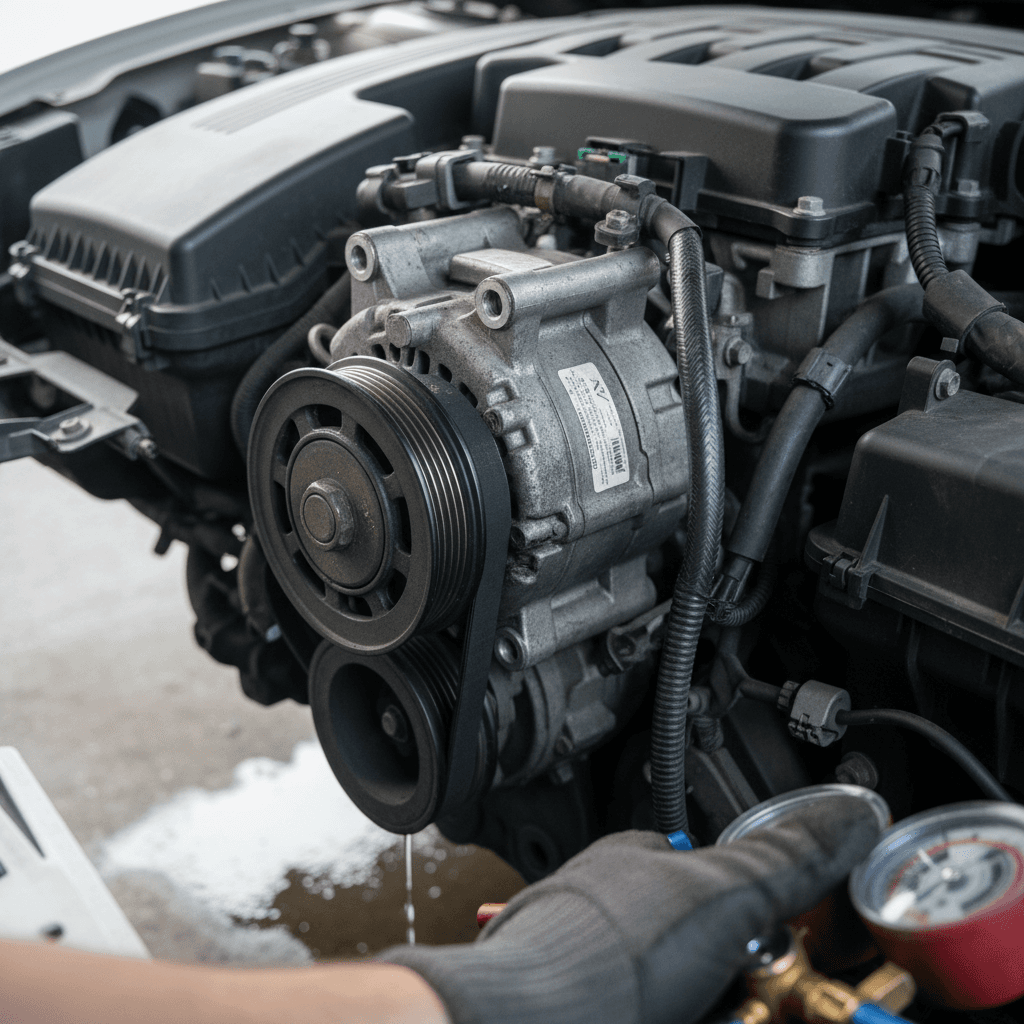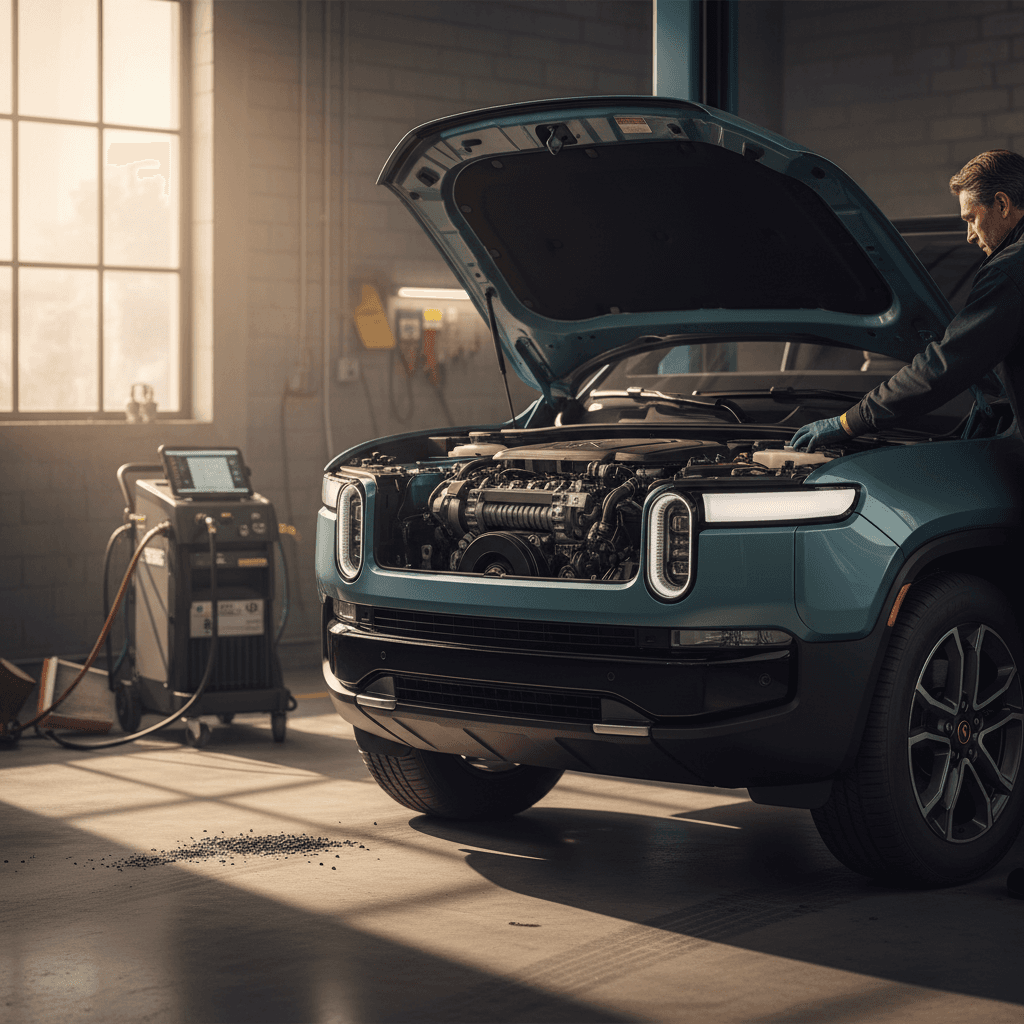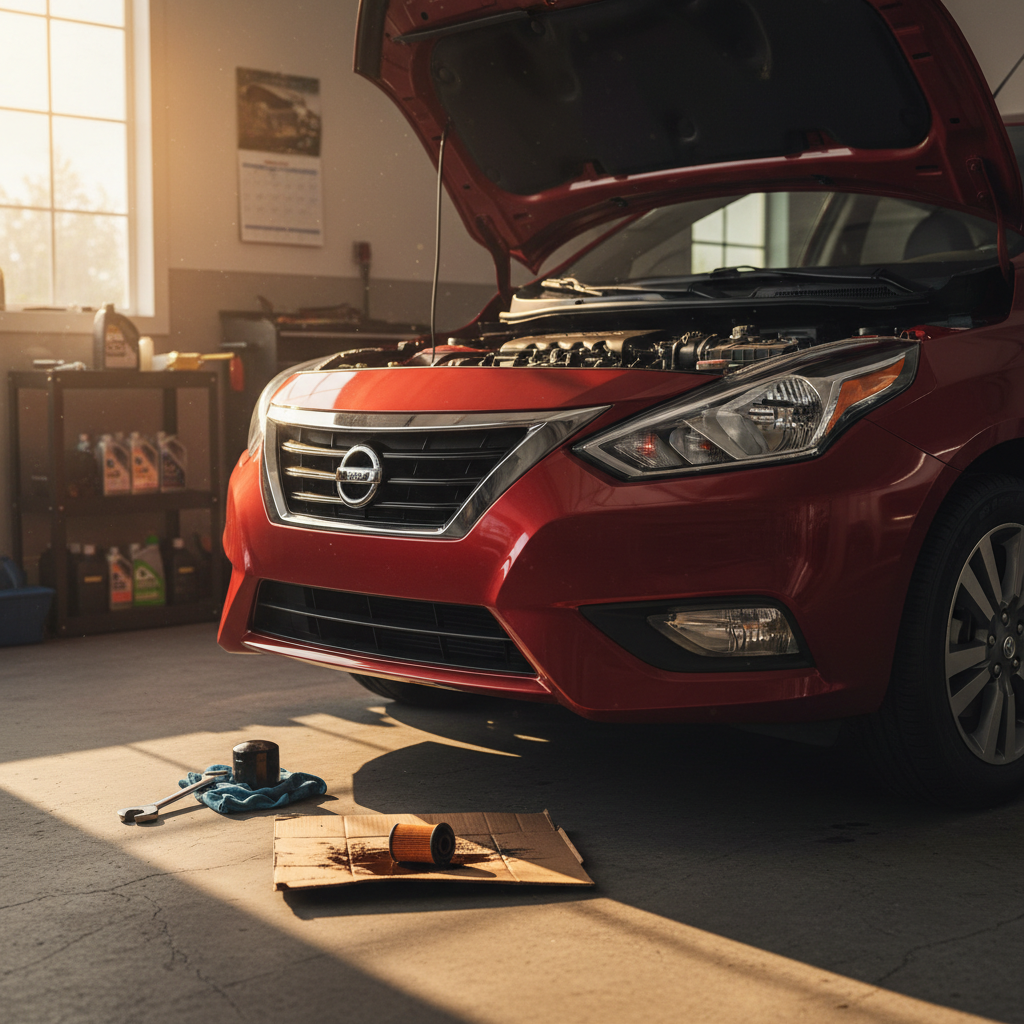If you’re typing “auto AC near me” because your vents are blowing warm air, you’re not alone. As summers get hotter and traffic gets slower, a healthy air conditioner isn’t a luxury, it’s basic drivability. Whether you’re driving a gas car, a hybrid, or a used EV you just bought from a marketplace like Recharged, knowing how to find the right AC shop (and what a fair price looks like) can save you money, time, and a lot of sweat.
Quick take
Why “auto AC near me” matters more in 2025
Modern vehicle AC systems aren’t just about comfort. They’re tied into your defrost and safety systems, your car’s electronics, and, on EVs and hybrids, sometimes even battery temperature management. When the AC underperforms, it can impact visibility, driver fatigue, and in extreme heat, your health.
What you’re really paying for with AC service
Those ranges are broad because “AC repair” covers everything from topping off low refrigerant to replacing a seized compressor. When you search for car AC repair near me, your goal shouldn’t just be the cheapest coupon, it should be the shop that will tell you which side of that price spectrum you’re actually on.
7 signs your car’s AC needs service now
You don’t need to be a technician to spot early AC problems. Catching these signs early can keep a $200 issue from turning into a $2,500 compressor job.
Common symptoms that mean it’s time to search “auto AC near me”
1. Vents are blowing warm or barely cool air
If your AC never really gets cold, or only cools on the highway, there may be low refrigerant, a weak compressor, or airflow issues. A shop will measure pressures and temperatures, not just guess.
2. Weak airflow from the vents
If the fan is on high but airflow feels like low, the culprit might be a clogged cabin air filter, failing blower motor, or debris in the system.
3. AC smells musty, moldy, or sour
Odors often point to mold or bacteria in the evaporator or a dirty cabin filter. Beyond being gross, it can affect your health on long drives.
4. Clicking, grinding, or squealing with AC on
Noises under the hood when you hit the A/C button can point to a failing compressor, clutch, belt, or fan motor. Don’t ignore these, noise is often the first warning before a full failure.
5. Water in the passenger footwell
A clogged AC drain can dump condensation into the cabin instead of outside. Left alone, that can cause mildew, corrosion, and damaged carpets or wiring.
6. Windows fog and won’t clear quickly
Your AC helps dehumidify the cabin. If your defrost struggles and the windshield stays foggy, the system may not be pulling enough moisture out of the air.
7. AC cycles on and off constantly
Rapid cycling can indicate pressure issues, low refrigerant, a faulty pressure switch, or control module problems. It’s a classic case for professional diagnostics.
Don’t wait for a full failure
Common auto AC repairs and what they cost
When you finally book that auto AC service near you, what might the shop recommend, and what’s a reasonable ballpark for each job? Exact prices vary by region and vehicle, but these ranges reflect what many U.S. drivers see in 2024–2025.
Typical auto AC services and price ranges
Use this as a conversation starter with your local shop, not a guaranteed quote.
| Service | What it involves | Typical price range (parts & labor) | When it’s appropriate |
|---|---|---|---|
| AC inspection & diagnostics | Pressure checks, leak test, basic electrical checks | $100 – $300 | Any time AC performance changes or you buy a used vehicle. |
| Cabin air filter replacement | Replacing filter that cleans air entering cabin | $40 – $150 | Weak airflow or musty smell; often combined with other service. |
| AC recharge (refrigerant service) | Recover, vacuum, and refill refrigerant to spec | $183 – $281+ | When refrigerant is low and no major leak is found. |
| Minor leak repair | O-rings, service ports, small hose or fitting repairs | $150 – $800 | Slow leaks caught early, often after a dye test. |
| Compressor replacement | New compressor, oil, often receiver/drier, system flush | $500 – $1,100+ | Noisy or seized compressor, metal contamination, no-cool conditions. |
| Condenser or hose replacement | New condenser, lines, or hoses plus recharge | $350 – $1,000+ | Physical damage or major leaks from front-end impacts or corrosion. |
Always ask for a written estimate before authorizing AC work.
Used car or used EV? Start with an inspection.
How to search “auto AC near me” the smart way
Typing auto AC near me into a search bar will spit out dozens of shops. The trick is filtering that list into a short, trustworthy shortlist instead of just clicking the first ad you see.
Three steps to find a reliable AC shop near you
Use your phone like an insider, not a first-time buyer.
1. Filter search results
Search variations like “car AC repair near me” and “AC diagnostic near me”. Look for shops that:
- Mention AC or HVAC specifically
- Show before/after photos or detailed service pages
- List refrigerants they service (R-134a, R-1234yf, EVs)
2. Read reviews the right way
Don’t just skim star ratings. Look for:
- Reviews that mention AC work by name
- Comments about honesty and explaining options
- How the shop responds to complaints
3. Call two shops, not one
A 3–5 minute call tells you a lot. Ask:
- “Do you perform full AC diagnostics, or just recharges?”
- “What’s your diagnostic fee?”
- “Are your technicians ASE or factory certified?”
Dealership or brand-certified shop
- Best if your car is under warranty or has a complex dual-zone or heat-pump system (common in newer EVs and luxury vehicles).
- Techs have factory training and access to software updates and technical service bulletins.
- Prices can be higher, but documentation is excellent for warranty claims.
Independent AC specialist
- Great for out-of-warranty cars, older vehicles, or when price is a key factor.
- Many independents invest in AC-specific tools and training.
- Ask if they’re comfortable with EV and hybrid HVAC if that’s what you drive.
Questions to ask before you book an AC appointment
A quick phone call or online chat can tell you whether a shop treats AC work as a serious diagnostic job or a quick add-on. Use these questions to separate the pros from the coupon-chasers.
- Do you perform a full AC diagnostic before adding refrigerant? (You want them to say yes.)
- What’s your diagnostic fee, and does any part of it roll into the repair if I approve work?
- Can you service my refrigerant type (R-134a vs R-1234yf) and my vehicle type (gas, hybrid, EV)?
- Do you provide a written estimate with parts, labor, and refrigerant type clearly listed?
- What warranty do you offer on AC parts and labor?
- Are your technicians ASE-certified or HVAC-specialized?
Green flags during the call
How AC service is different for EVs and hybrids
If you drive an electric vehicle or hybrid, searching “auto AC near me” gets more complicated. The AC system may be cooling more than just you, it can help manage battery or power electronics temperature, and some EVs use heat-pump systems that run year-round for both heating and cooling.

Key differences with EV and hybrid AC service
Why not every “AC shop” is the right one for your EV.
High-voltage components
Many EVs use an electric compressor powered by the high-voltage battery. Servicing these systems safely requires high-voltage training and insulated tools.
Battery & cabin thermal management
Some EVs share chillers and coolant loops between the battery pack and cabin. A misdiagnosed AC issue can affect range, charging performance, and battery longevity.
Specialized refrigerants & oils
Newer vehicles often use R-1234yf and special non-conductive compressor oil. The wrong fluid can damage components or create safety risks.
Why this matters when buying used
When you’re shopping used EVs on a marketplace like Recharged, build AC checks into your inspection plan. Matching a verified battery report with a clean AC bill of health gives you a much clearer ownership picture.
Ask this if you own an EV or hybrid
DIY recharge cans vs professional AC repair
Walk into any parts store and you’ll see DIY recharge cans promising ice-cold air in minutes. They’re tempting when you’re sweating in a parking lot, but they’re not always the smart answer.
DIY recharge cans: what to know
- Okay as a temporary top-off on older R-134a systems if you understand the risks.
- Easy to overfill, which can raise system pressures and damage components.
- Many kits include sealers that can gum up professional equipment and make future repairs harder.
- They don’t fix leaks; at best, they mask symptoms for a while.
Professional AC service: why it’s safer
- Shops recover, vacuum, and weigh refrigerant, then refill to exact factory specs.
- They can leak-test, inspect electrical components, and check compressor operation.
- Necessary for newer R-1234yf systems and virtually all EVs and hybrids.
- Repairs come with documentation and usually a parts-and-labor warranty.
When you should skip DIY entirely
How to prep your car for an AC visit
A little prep before you roll into that shop you found under “auto AC near me” can make diagnostics faster and more accurate, and sometimes cheaper.
Simple steps before your AC appointment
1. Document the symptoms
Note when the problem happens: only at idle, only on the highway, only after the car is hot, or all the time. The more specific you are, the easier it is for the tech to reproduce the issue.
2. Check other basics
Make sure the HVAC controls work, the fan speeds change, and there’s no obvious debris stuck in the vents. If your check-engine light is on, mention it, some HVAC issues are electronic.
3. Bring prior repair records
If you’ve had previous AC work or recharges, bring receipts. A pattern of frequent recharges is a clue that there’s an unfixed leak.
4. Ask for an estimate before you leave
If the shop needs more time, that’s fine, but ask when you’ll get an estimate and how they’ll contact you. Don’t leave your car overnight without agreeing on next steps.
5. For EVs, share charge and range info
Let the shop know if you’ve noticed <strong>range drops or unusual fan noise</strong> around the time AC issues started. It may help diagnose battery-cooling interactions.

FAQ: Finding auto AC service near you
Frequently asked questions about “auto AC near me”
The bottom line on searching “auto AC near me”
When you search “auto AC near me”, you’re really looking for two things: someone who will diagnose the problem properly and someone who will treat you fairly. That’s more important than any single coupon or same-day promise. Start with symptoms, call a couple of shops, ask the right questions, and be especially selective if you’re driving an EV or hybrid.
If you’re also shopping for a used electric vehicle, platforms like Recharged can simplify the bigger picture, battery health, fair pricing, financing, and delivery, while you work with a trusted local shop to keep your AC ice-cold. Put those together, and you get what you actually wanted when you started searching: a cool, comfortable car you can trust on the hottest days.

